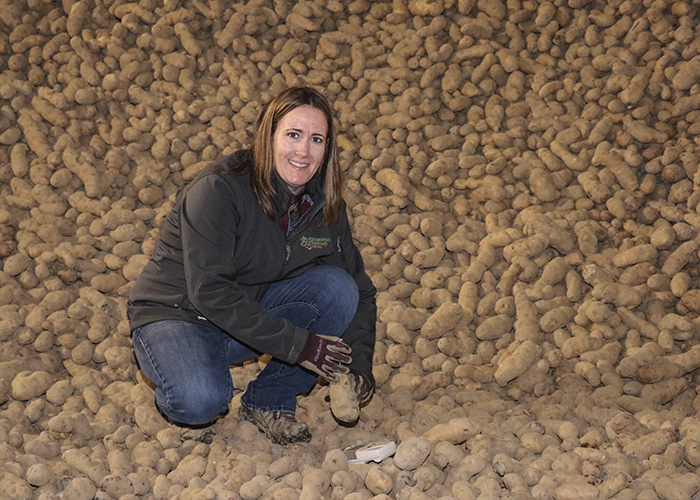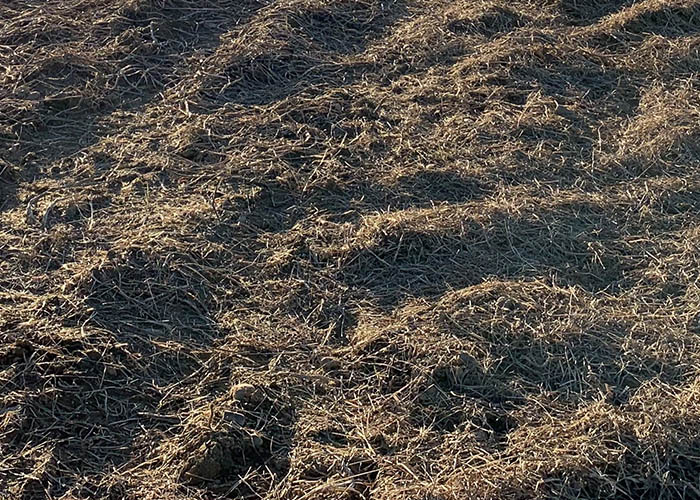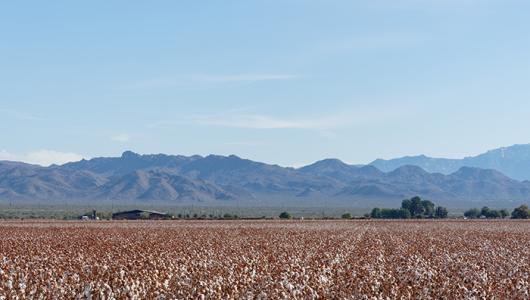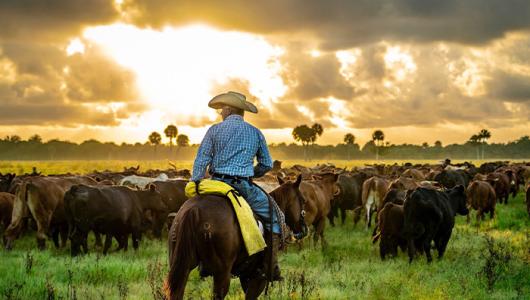Maine farmers harvested more than a quarter of a billion dollars’ worth of potatoes in 2023 from the fertile loam soils of northern New England. In Aroostook County, potatoes are the dominant farm crop and harvest season continues through October. However, for potato grower Erica Peabody, who farms with her husband and father on Fitzpatrick & Peabody Farm, she already has her eye on the years to come.
“Climate change is impacting all of us,” Erica said. “I believe that you will continue to see growers armoring their soils to be the best that they can be with more organic matter, greater diversity in the crops planted in rotation, reduced risk pesticide use, and much more.”

Thanks to the additional funding provided by the Inflation Reduction Act, producers like Erica have additional help to continue their success well into the future, and they will in-turn help mitigate climate change. The Inflation Reduction Act provides an additional $19.5 billion for NRCS to deliver financial and technical assistance to producers for climate-smart mitigation activities through existing USDA conservation programs.
Using this additional funding provided through the Natural Resources Conservation Service’s (NRCS) Environmental Quality Incentives Program (EQIP), Erica will help build on the family’s decades of conservation work focused on optimizing soil health.
“Soil health is the focus of every farmer,” Erica said. “One of our greatest resources is our soil, and how we take care of that soil has a very significant impact on our crop tonnage, quality and the environment.”
Fitzpatrick & Peabody Farm will utilize two Climate-Smart Agriculture and Forestry Mitigation Activities – cover cropping and mulching. Cover crops help build cropping system resiliency by improving soil quality, while also helping manage soil aggregate instability. Mulching with natural materials helps reduce soil compaction and erosion, while also increasing organic matter and reducing sediment runoff. Both practices can also help to enhance soil carbon sequestration, which is key to helping mitigate climate change in agriculture.
Erica and her family added cover crops into their farming rotation system nearly twenty years ago.
“Our farm has a long history of working with NRCS on various conservation projects,” Erica explained. “Several years ago, we started mulching following the harvest of the potato crop to help reduce soil erosion during the months that crops are not growing. Recently, we have worked with NRCS on cover cropping and moved to multi-species cover cropping (and) experimenting with different species mixtures.”

The cover crop mixes on the potato farm vary, but always include a rye grass. Erica said the rye grass returns carbon to the soil, which they cannot apply like other nutrients.
“We also include a red clover for its nitrogen fixing properties to help feed a growing cover crop,” Erica said. “The mix includes a Brassica with a taproot for loosening the soil and another Brassica for its disease-suppressive properties.”

Erica said they are optimistic about their farm’s future by being able to continue implementing resilient conservation practices through Inflation Reduction Act funding. As the old saying goes - “the future looks bright” for the Fitzpatrick & Peabody Farm.
Thomas Kielbasa is a public affairs specialist for NRCS in Maine.


